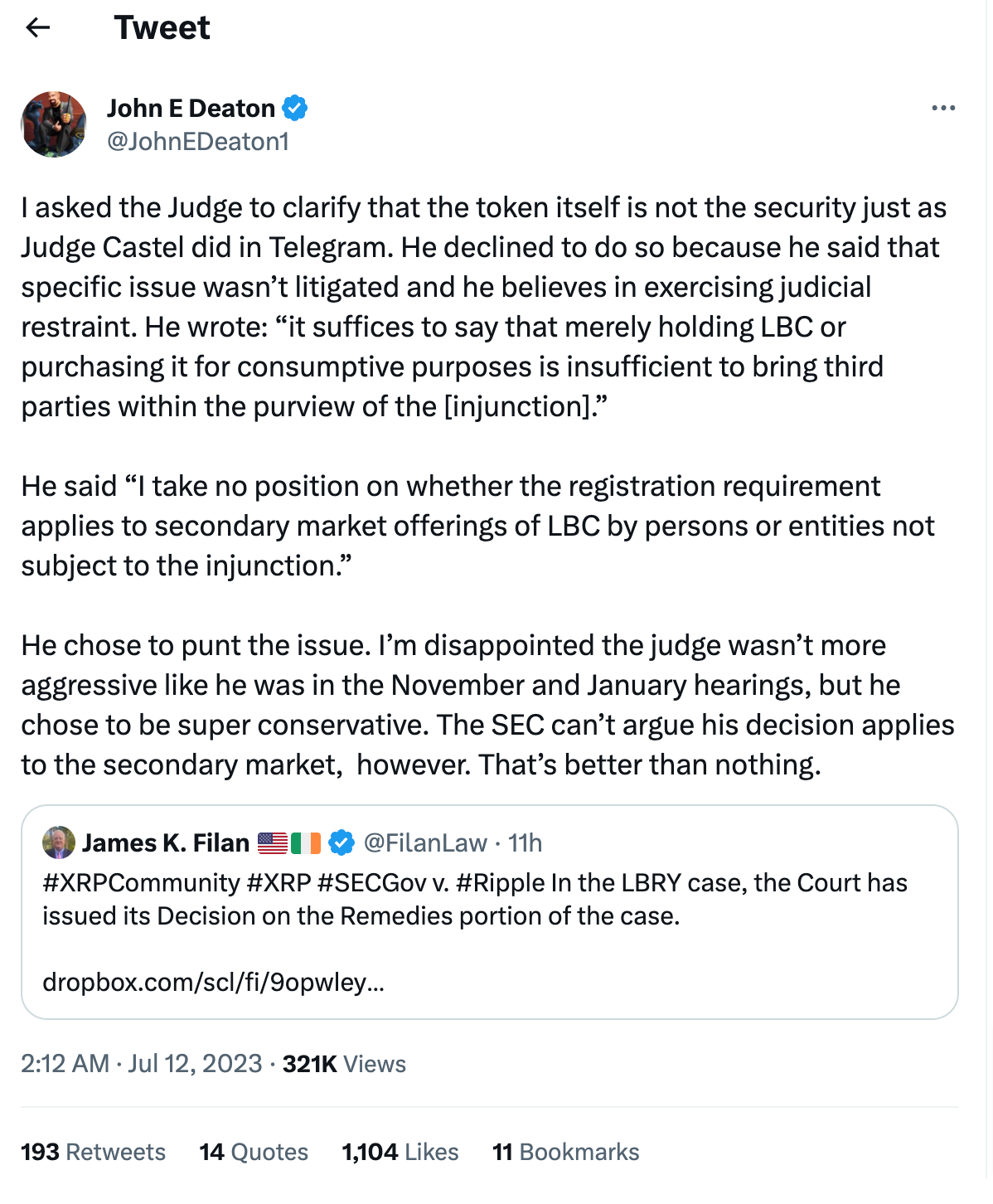A judge presiding over the LBRY case has refrained from issuing a ruling on whether secondary sales of LBRY Credits (LBC) qualify as securities. The decision (1) has implications for the broader cryptocurrency industry, as it adds to the ongoing legal debate surrounding the regulatory classification of digital assets. The case highlights the need for clearer guidance from regulatory bodies to ensure compliance and foster innovation in the crypto space.

LBRY Credits and the Securities Debate
LBRY Credits (LBC) (2) are a form of cryptocurrency used within the LBRY network, which facilitates the sharing and monetization of digital content. The case revolves around the question of whether secondary sales of LBC tokens should be treated as securities under existing securities laws. The judge's decision to withhold ruling highlights the complexities surrounding the regulatory classification of digital assets.
Implications for the Crypto Industry
The lack of clear guidelines and regulatory clarity in determining the status of digital assets as securities poses challenges for both market participants and regulatory authorities. The LBRY case adds to the ongoing legal uncertainty, potentially impacting other cryptocurrency projects that involve secondary token sales. The outcome of this case may set a precedent for future rulings and shape the regulatory landscape for the broader crypto industry.
The Need for Regulatory Clarity
The LBRY case underscores the urgency for regulatory bodies to provide clear guidelines on how digital assets should be classified and regulated. Precise definitions and frameworks can foster innovation, ensure investor protection, and promote a level playing field for market participants. It is crucial for regulators to engage with industry stakeholders and develop a balanced regulatory approach that supports innovation while addressing investor concerns.










